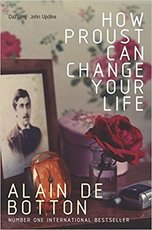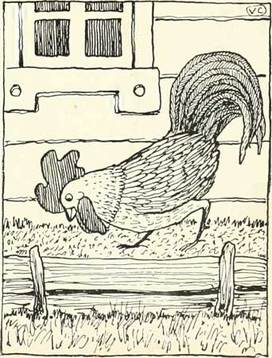 I heard about How Proust Can Change Your Life by Alain de Botton from Tim Ferriss's podcast episode with the author. I love French literature, though I (ironically) haven't had time yet to read the seven-volume opus In Search of Lost Time by Marcel Proust that forms the foundation for Alain de Botton's recommendations. In a neat and short book, Alain de Botton goes through 9 different parts of life (such as love, reading, suffering, time management, emotions, and friendship) to distill the lessons relevant to each from the various writings (and personal experiences) of Proust. I found the section about how to put books down and the limits of reading to be most interesting and impactful. I also liked the lessons around appreciating art and objects around you, suffering well, and expressing yourself in an original way. I had learned about Proust of course before but not in as much depth, and I actually think that Alain de Botton's book will give me a good path to better enjoying and appreciating Proust's actual book when I get around to reading it. Some of my main notes and takeaways on the book are below.
0 Comments
Toddlers love to read the same book over and over again: it helps them learn language and gives them a small sense of security, comfort, predictability, and mastery over even a small part of the confusing world around them. While helpful for them, it can drive parents crazy (or lead them to come up with ridiculous premises for blog posts). Yesterday my toddler insisted on my reading for the fifth time (that day) the Russian folk tale "Петушок и бобовое зёрнышко," or "The Rooster and the Bean." (Click those links to read the tale in the respective language.) The gist of the story is that this poor rooster who is always rushing chokes on a bean, and in order to save his life, a chicken needs to solve one problem after another in an endless cascade of sub-tasks which finally allow her to save the rooster's life in the end. The story teaches (at least) three obvious lessons. First, don't rush while eating (or in general). Second, accomplishing things in life (or getting anything non-trivial like a "project" done for that matter) is going to be much more complicated and involve a lot more dependent steps completed first. And third, often many other people will be involved whose help you will need in order to get what you want done. But for me personally, I secretly got a kick out of reading the story because it also teaches a valuable lesson about technology development. When I was at Google, there were many times I tried to do something seemingly quite simple ("just change the color over here" or "just move this piece of code from here to here"), and it required 5+ steps of dependent work (refactoring, renaming, moving, etc.) to be completed in series before the final trivial change/fix could be made. I learned from a teammate that this is generally called "yak shaving," which refers to the seemingly endless series of useless activities which, by allowing you to overcome intermediate difficulties, allow you to solve a larger problem [Sources: 1, 2, 3]. And I've experienced the same thing in life and house projects as well: "I just want to install a camera here" devolves into "I need to run power here" which devolves into "I need to rewire, order, and set up a thousand other things first." I guess it's never too early to learn the lesson that projects are complicated, and getting a big thing done requires patience with lots of steps, which is why this Russian folk tale about the rooster seem to teach this lesson so early on. If you want to waste any more of your precious life, you can watch the pointless video below of the Ren & Stimpy Show episode about the (pointless) "Yak Shaving Day" that apparently inspired the term "yak shaving." I’m really excited to have been able to invest in Contraline. Based in Charlottesville, Virginia, Contraline is a medical device company developing the first long-lasting, non-hormonal, and reversible male contraceptive.
The company was started by a founder (fellow immigrant!) who is passionate about giving men more options and responsibility in contraception. He wrote essays to get into college about the lack of a male birth control pill and has been working tirelessly to recruit a strong team of scientists with an actual lab and tangible progress towards clinical trials. If successful, the product would be game-changing, and I acknowledge the risks are very large and probability of success low. I like that the founder is so committed to seeing his vision turn into reality. I’m proud to have invested alongside Jason Calacanis, Mike Savino, LAUNCH, Founders Fund, FundRx, and Abstract Ventures. I’m personally excited about the company because the options for men are indeed very limited (either not very effective or permanent and painful). 73% of couples in the world rely on female partners for contraception. I believe the societal and social impact from giving men more options and responsibility would greatly benefit gender relations and couple dynamics overall. And I like that there are defensible scientific advances at the core of this technology that have the chance to be executed upon by a good team. Couples and physicians can register their interest in Contraline here: http://www.contraline.com/participate Here is recent press coverage on the company: TechCrunch, WMRA What I love:
Risks:
|
Archives
June 2024
Categories
All
Subscribe |


 RSS Feed
RSS Feed
